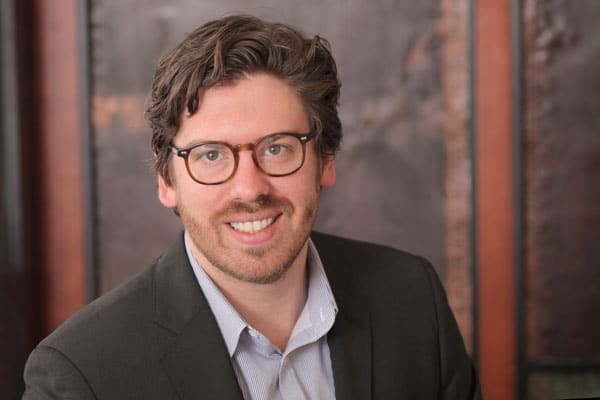The subject of this issue’s In Conversation interview, Samuel Carter—a managing director at The Rockefeller Foundation working on the Resilience Team and the Global Resilience Partnership—fills out our questionnaire, picks the subway over the skies, and drops wisdom on why our world isn’t necessarily scarier now; we just know more.
The perfect city would have
Fair and equitable access to housing and, as Truman Capote famously said, the ability to purchase a canary at 3:00a.m.
One technology on the horizon that can change the world
Driverless cars.
Your topic if you were asked to give a TED Talk
“Working at the Edges: Dissolving disciplines and building coastal resilience.”
Building you would save if the world was going to end
International Space Station.
One book everyone should read
The Control of Nature by John McPhee.
Most memorable mentor or teacher
Henk Ovink, Special Envoy for International Water Affairs at Kingdom of the Netherlands.
Favorite mode of transportation
The subway.
Wasteful habit you’re trying to kick
Air travel.
Most fulfilling hobby
Cooking.
Most memorable hometown haunt
James River Park in Richmond, VA.
Greatest professional pet peeve
Preciously held beliefs in disciplinary dogma.
Environmental come-to-Jesus moment
Reading Silent Spring in 2001 as an undergraduate at NYU.
Most compelling argument for environmental stewardship
Our children.
Way to make the environment a non-partisan issue
Focus on resilience—we’re getting more out of every dollar to create more benefits for more people today and saving money on recovery from future disasters.
What you’d tell the green movement if it was your child
When you get out of high school everyone will stop picking on you and realize you were right.
Building trend you hope will never go out of fashion
Designing with the natural landscape.
Your field’s biggest hurdle to improving its practices
Integrating/communicating across disciplines.
Most meaningful project you’ve completed
The National Disaster Resilience Competition.
Explain “green” to a kindergartner
Helping things (people, plants, and communities) grow stronger and more healthy.
Most common green myth
It necessarily runs counter to business/capitalism.
One question industry professionals should always be asking themselves
How is my design influencing broader social/physical/ecological systems.
Social media—helping or hurting
Helping.
The thought or idea that centers you
While it feels like we live in a scarier world than ever before, we really just know more. The question is what we do with that knowledge.
Connect with Samuel Carter: LinkedIn
Download a PDF of this story here.

